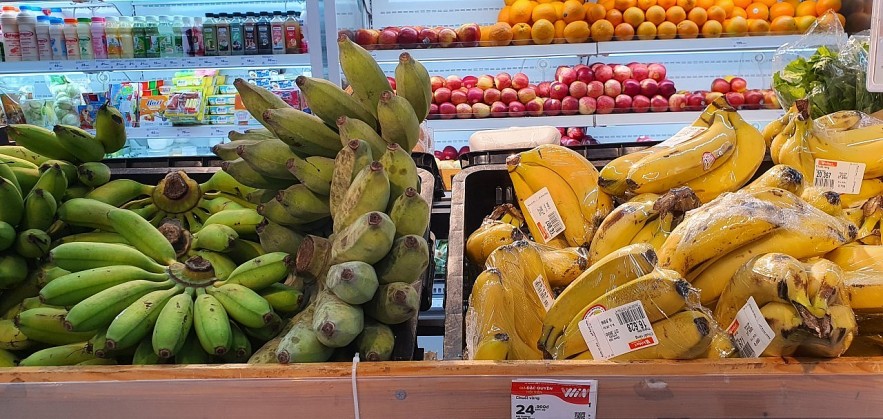Agricultures, Foods, News & Event
Exporting agricultural products to China: It is necessary to quickly switch from small quota to official quota
According to experts, Vietnamese agricultural products coming here must be confirmed in the Chinese market by quality, not quantity anymore. That is reflected in the sustainable official export path and is an inevitable trend that businesses must follow.

13 items officially exported to China
Currently, China is one of the three largest import markets for Vietnam’s agricultural, forestry and fishery products. By the end of April 2023, export value to China accounted for 20.9%, up 3.3% over the same period last year.
From the second half of 2022, Vietnam and China respectively signed the official export protocol of durian, banana, sweet potato and bird’s nest to the Chinese market, opening new opportunities for products to penetrate deeply into the Chinese market. this huge market. According to statistics from the Ministry of Agriculture and Rural Development (MARD), up to now, Vietnam has had 13 agricultural products officially exported to China, including: bird’s nest, sweet potato, dragon fruit, longan, and rambutan. rambutan, mango, jackfruit, watermelon, banana, mangosteen, lychee, passion fruit and durian.
Recently, in April 2023, in Binh Tan district, Vinh Long province, the first shipment of 28 tons of sweet potatoes took place in the official route to China. This is the result of many years of negotiations between the Ministry of Agriculture and Rural Development of Vietnam and the General Administration of Customs of China, the official protocol on exporting sweet potatoes to China was signed on November 22, 2022.
Mr. Dang Phuc Nguyen – General Secretary of the Vietnam Fruit and Vegetable Association said that China is still an important market for Vietnam’s fruit and vegetable industry. In 2023, if it is favorable, it is expected that durian export turnover can reach around 1 billion USD. Besides dragon fruit, durian products will bring in billions of dollars in value in the near future and it is forecasted that the turnover of the fruit and vegetable industry in 2023 will reach about 4 billion dollars.
Convert to official export
In fact, the Chinese market brings many opportunities for Vietnamese agricultural products, but it also comes with new risks in terms of quality control and concerns about congestion at the border gate in the upcoming peak season. The worrying thing is that recently, China has developed and expanded the area of lychee, dragon fruit, passion fruit … which threatens the consumption of Vietnamese agricultural products in this market. Many Vietnamese agricultural products have not yet signed a phytosanitary protocol with China, leading to a control rate of nearly 100% of shipments, affecting export performance.
Not only that, China is building a roadmap to close the border, completely eliminating small-scale exports to this country, which will be a big obstacle for both Vietnamese and Chinese traders. Currently, Vietnam’s agricultural exports are only counted on the fingers of the number of items that are officially exported. Meanwhile, up to 70% of agricultural products are exported to your country by informal way and most of the exporting enterprises are small businesses.
Facing that situation, experts as well as functional agencies have affirmed that converting to official export is an inevitable trend and businesses, localities and people must comply.
In order to officially export to the Chinese market, authorities recommend that localities and management agencies should develop industry development strategies, build brands in parallel with building production areas and specialized farming areas. concentrated, large-scale farming based on market signals. Enterprises need to regularly update and comply with regulations on quality standards, testing, quarantine, packaging, and traceability of the Chinese market.
Economic expert Vu Vinh Phu said that besides changing the scale, it is also important to build warehouses to preserve agricultural products in border localities. This will help the vegetables stay fresh longer, keeping their good quality when it comes to delivery time.
On the side of state agencies, in the coming time, the Ministry of Agriculture and Rural Development will continue to organize activities such as sending delegations to work with two provinces of Yunnan and Guangxi (China) to promote trade in agricultural products. At the same time, the Ministry of Industry and Trade is developing a draft decree amending and supplementing a number of articles of Decree No. 14/2018/ND-CP dated January 23, 2018 detailing border trade activities.
